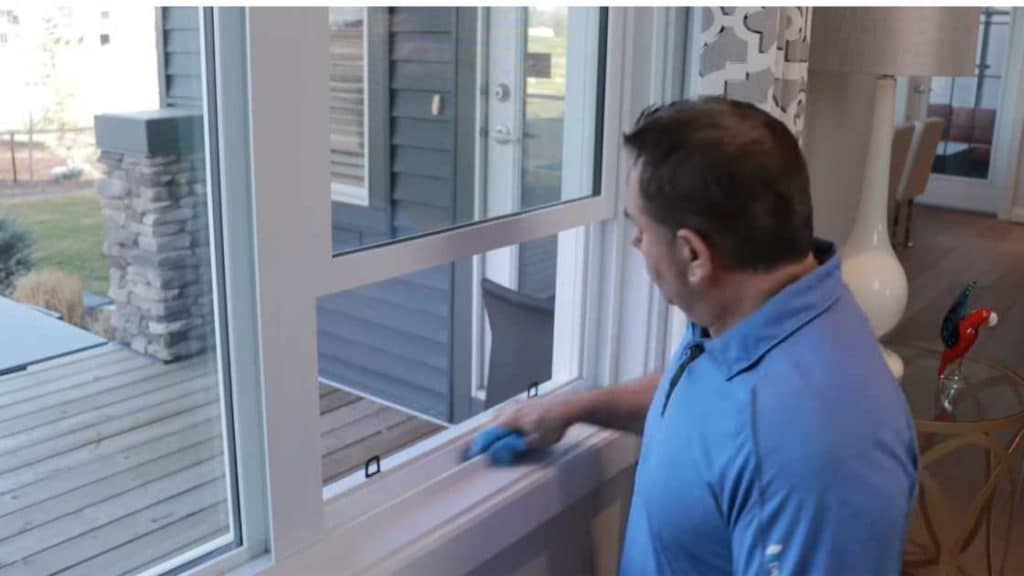To clean weep holes in windows, remove debris with a wire brush and flush with water. Regular maintenance keeps these drainage points functioning properly.
Taking care of your windows involves more than just routine cleaning; it requires attention to often overlooked details, such as weep holes. So, how to clean weep holes in windows?
These small openings situated at the base of window frames play a vital role in preserving your windows and ensuring a comfortable indoor environment.
They serve as drainage channels, allowing water to escape and preventing the accumulation of moisture that could give rise to mold issues.
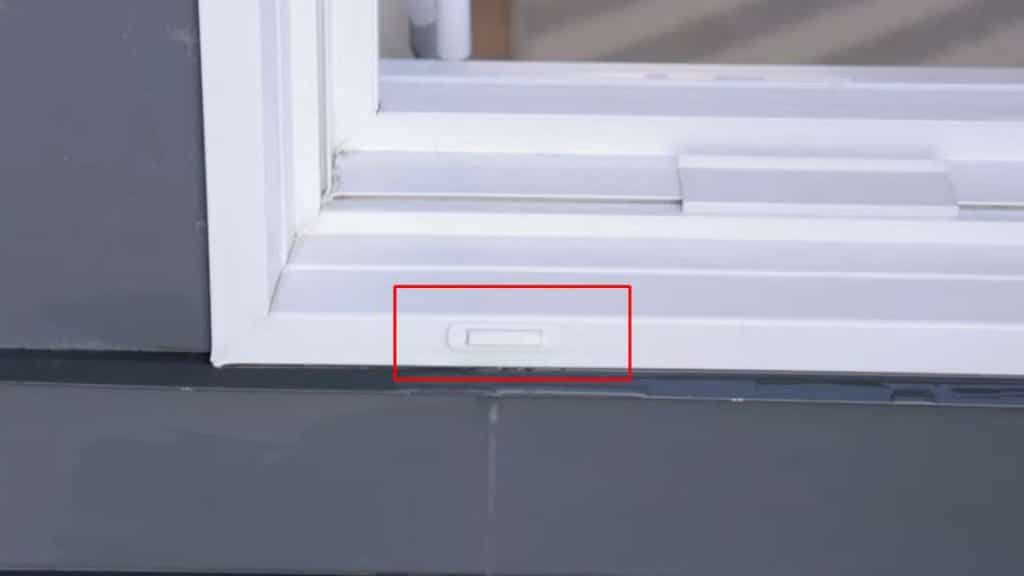
Despite their importance, homeowners tend to neglect these tiny yet significant features during regular cleaning routines. A clogged weep hole can lead to water pooling, causing damage to both the window frame and the surrounding wall.
To improve the longevity of your windows and maintain a healthy home environment, it’s essential to establish a simple yet effective cleaning routine for these weep holes.
Regularly checking and clearing these vents of any obstructions is key to preserving the structural integrity of your windows. By doing so, you contribute to keeping your home dry and mold-free.
Don’t underestimate the impact of clean weep holes – they are a small detail that can make a big difference in the overall health and lifespan of your windows.
Introduction To Weep Holes
Ever noticed tiny openings on the bottom of window frames? Those are weep holes. They play a critical role in window health. Let’s Sink into their function and cleaning importance.
The Function Of Weep Holes
Weep holes may seem small, but they have a big job. These holes allow water to escape from window tracks. This helps prevent water damage and mold. They also let air flow through, stopping condensation buildup.
The Importance Of Keeping Weep Holes Clean
Clean weep holes keep windows functioning well. Dirt and debris clog can lead to trapped water and potential damage. Regular cleaning ensures these holes do their job effectively.
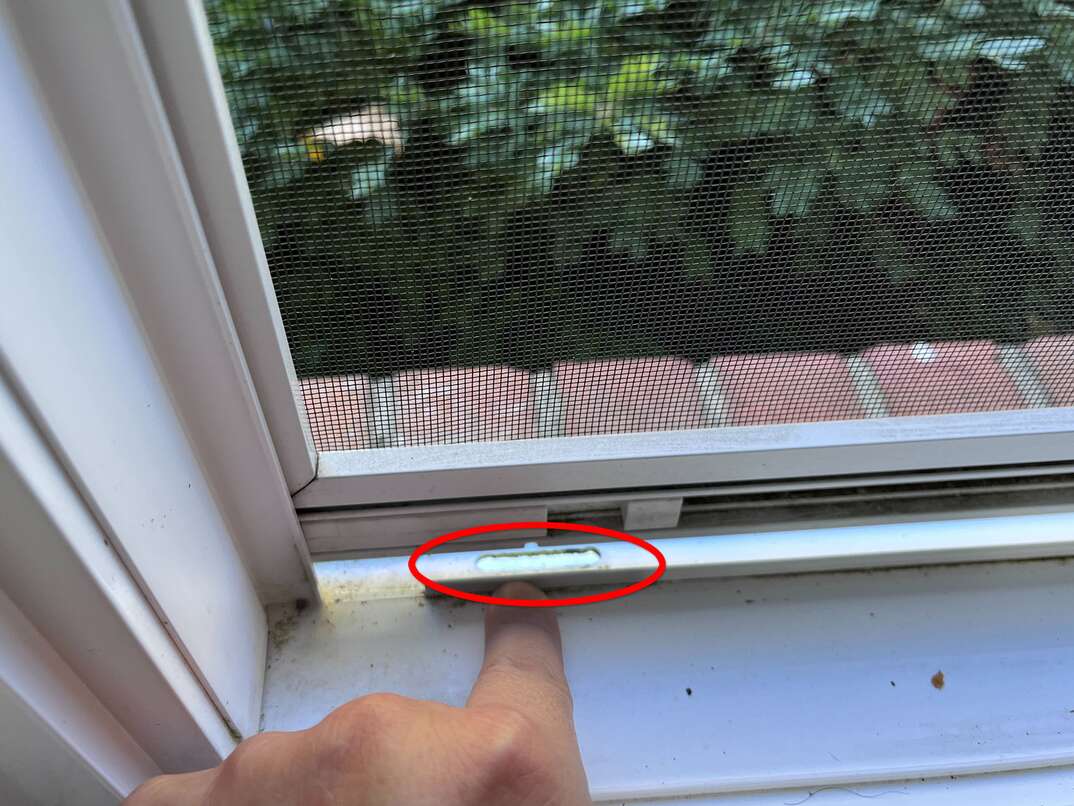
Identifying Weep Holes
Weep holes are tiny openings in windows that prevent water buildup. They are vital for window maintenance and longevity. Knowing where to find them is the first step to keeping your windows functional and in tip-top shape.
Locating Weep Holes On Your Windows
Finding weep holes might seem tricky, but it’s quite straightforward. Look at the bottom frame of the window from outside. You’ll see small slots or holes. These are the weep holes.
- Check the exterior window frame.
- Search for openings near the sill.
Different Types Of Weep Holes
Weep holes can differ from window to window. Two common types are visible: cover-style and open.
| Cover-Style Weep Holes | Open Weep Holes |
|---|---|
| Have a small flap or cover | Simple openings without covers |
| Prevent insects from entering | Easier to clean due to no covers |
Preparation For Cleaning
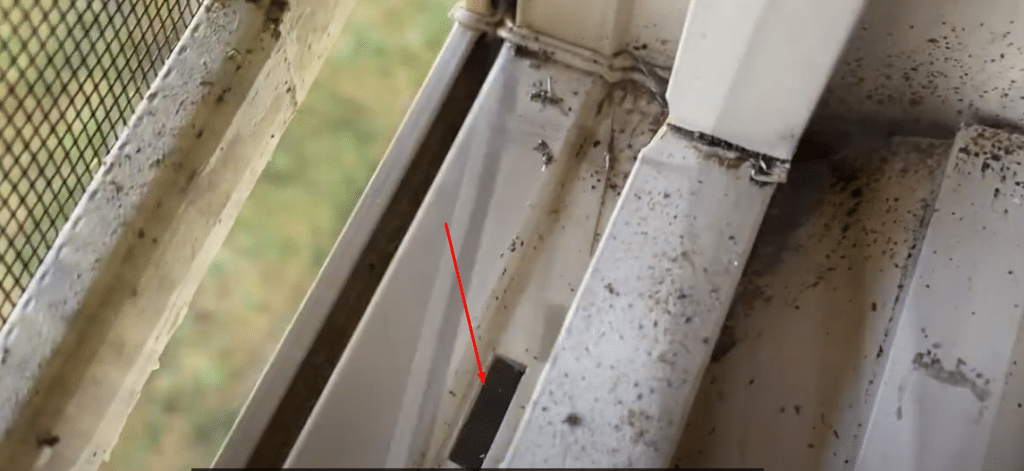
To ensure your windows remain in top-notch condition, cleaning weep holes is essential. Before starting the cleaning process, take time to prepare properly.
This preliminary step is essential to achieving the best results without causing damage to your windows or risking personal safety. Here’s what you need to know to prepare effectively.
Safety Measures And Precautions
Cleaning weep holes requires attention to safety. Working near windows could involve risks, particularly if they are on upper floors. Here’s a checklist:
- Wear gloves to protect your hands from dirt and possible sharp edges.
- Use safety goggles to guard against any debris.
- Stable footing is a must. Ensure ladders or stools are secure.
- Select a time for cleaning when there’s ample daylight to see clearly.
Tools And Materials Needed For Cleaning Weep Holes
Gather all the necessary tools and materials before you begin. This will make the cleaning process smoother and more efficient.
| Tool/Material | Use |
|---|---|
| Soft brush or old toothbrush | To dislodge loose debris |
| Compressed air can or air pump | To blow out finer particles |
| White vinegar and water solution | For cleaning and disinfecting |
| Thin wire or pipe cleaner | To clear out blockages |
| Cotton swabs | For detailed cleaning |
| Protective gloves and goggles | For personal safety |
With these preparations in place, cleaning your window weep holes will be a simple task. Just a few minutes of maintenance can prevent costly repairs in the future.
Routine Inspection
Routine inspection of weep holes in windows keeps your home dry and air flowing as it should. Just like you check your smoke detectors or change your air filters, weep holes demand attention too.
Schedule For Regular Inspection Of Weep Holes
Keeping a schedule for regular check-ups is key to well-functioning weep holes. Here’s what you need to do:
- Twice a Year: Aim to inspect your weep holes with the change of seasons.
- After Heavy Storms: Debris can clog these passages after rain or wind.
- During Routine Cleaning: When wiping down windows, glance at the weephole area.
Signs That Your Weep Holes Need Cleaning
Detect problems early by spotting these signs:
| Sign | Meaning |
|---|---|
| Water Inside Window Track | Blocked weep holes may cause water to pool. |
| Visible Debris | Leaves or dirt can visibly clog the weep hole. |
| Musty Smells | A sign of mold or mildew from trapped moisture. |
By spotting these early, you can prevent damage and maintain your windows efficiently.
The Cleaning Process
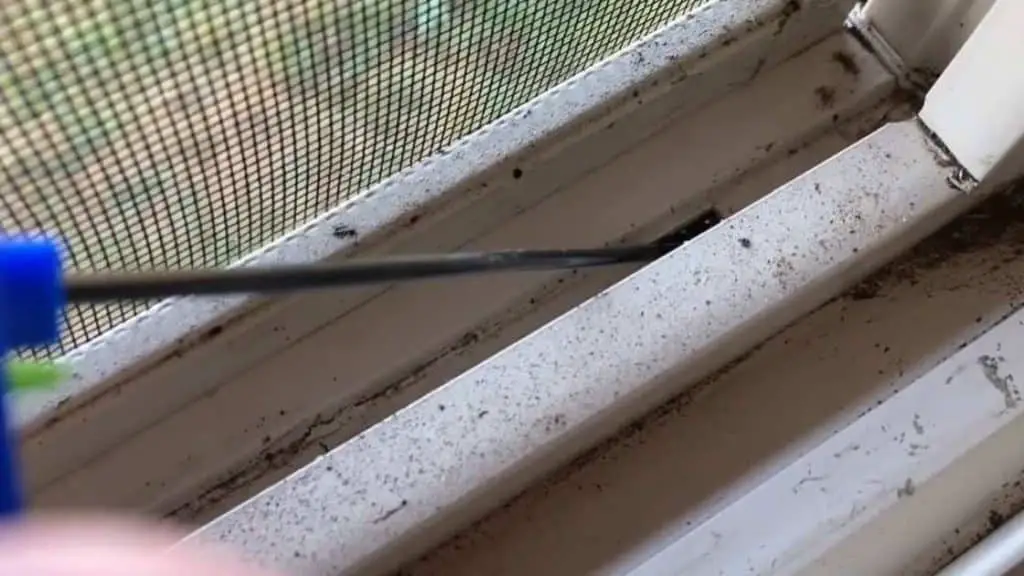
Clean windows are vital for an appealing home. Over time, weep holes in windows can get blocked. Dust, dirt, and small insects can clog these holes.
This can lead to poor drainage and damping issues. Regular cleaning extends your windows’ life and maintains your home’s health.
Step-by-step Guide To Cleaning Weep Holes
Follow these easy steps:
- Inspect your windows to locate the weep holes.
- Gather necessary tools such as a soft brush, vacuum, and pipe cleaner.
- Gently brush away any visible debris from the hole’s exterior.
- Insert a pipe cleaner into the weep hole. Twist it to dislodge dirt.
- Use a vacuum with a nozzle attachment to suck out loose dirt.
- Flush the weep holes with water using a spray bottle if needed.
- Test the weep hole by pouring a small amount of water to ensure it drains.
Troubleshooting Common Issues
Encounter a problem? Need help? Check these tips:
- If the weep hole is blocked, use a wire hanger to gently clean deeper.
- Stuck with tough debris? Soak the area with vinegar, then try cleaning again.
- Flushing doesn’t work? A plumber’s snake might clear the internal pathway.
- Prevent future problems by installing window hole covers to keep debris out.
After Cleaning Care
After Cleaning Care of weep holes can mean the difference between windows that function effectively and those that suffer from moisture build-up and related issues.
Once you’ve cleared out all the debris and ensured smooth drainage, a few simple steps will maintain the health of your window weep holes.
Measures To Keep Weep Holes Functional
To keep weep holes working well, regular checks are key. Here are some straightforward actions:
- Inspect weep holes semi-annually.
- Ensure no obstructions block the flow of water.
- Trim nearby plants to prevent clogging.
- Use a soft brush for internal cleaning when needed.
- Monitor for signs of water buildup frequently.
When To Replace Or Repair Weep Holes
Over time, weep holes can show wear and require attention. Look for these clues:
- Visible damage to the weephole structure.
- Water still accumulates even after cleaning.
- Debris that rebuilds quickly after cleaning.
- Unpleasant odors suggest persistent moisture issues.
If these issues arise, a professional check-up might be necessary. Repairs or replacements depend on the extent of the damage. An experienced technician can offer the best course of action.
Prevention Strategies
Keeping weep holes in your windows unblocked is essential for preventing water damage. By adopting smart prevention strategies, you can save time and avoid the hassle of frequent clean-ups. Let’s sink into how you can keep your weep holes free-flowing.
Tips To Prevent Future Blockages
Consistent checks and simple routines are your best defense against blocked weep holes. Follow these guidelines to keep them clear:
- Regular inspections: Peek at your weep holes monthly.
- Clean debris: Use a soft brush to gently remove dirt.
- Trim nearby foliage: Keep plants away from your windows.
- Cover wisely: Consider non-blocking covers for protection.
- Avoid silicone sealant: This can block weep holes accidentally.
The Role Of Professional Maintenance
To further guard against blockages, professional maintenance plays a key role. Experts can spot issues early and ensure optimal weep hole function. Here’s how they help:
| Service Type | Benefits |
|---|---|
| Inspection | Identify hidden blockages |
| Cleaning | Remove tough buildup |
| Repair | Fix damages causing blockages |
| Advice | Personalized tips for your windows |
Wrap-Up and Good Ideas
Mastering the cleanliness of window weep holes maximizes their efficiency and extends window life. T
he best practices and regular maintenance importance will ensure smooth operation and prevent water damage in your home.
Summary Of Key Takeaways
- Inspect weep holes frequently for blockages.
- Use simple tools like soft brushes or compressed air for cleaning.
- Avoid water accumulation by ensuring clear weep channels.
- Check for proper functionality post-cleaning through a water test.
Advocating For Regular Maintenance Routines
Regular cleaning ensures long-lasting windows. A routine schedule prevents build-up and avoids costly repairs. Follow these steps:
- Set bi-annual reminders to inspect and clean weep holes.
- Post-storm assessments can catch issues early.
- Record cleaning sessions for consistent maintenance.
Adopt these best practices to keep home windows in prime condition.

Frequently Asked Questions Of How To Clean Weep Holes In Windows
How Do You Unblock A Window Weep Hole?
To unblock a window weep hole, gently insert a thin wire or straightened paperclip and wiggle it to remove debris. Flush the hole with water to clear any remaining blockage. Regularly check and maintain weep holes to prevent future clogs.
How Do You Keep Weep Holes Clean?
Keep weep holes clean by gently using a wire brush to remove debris. Regularly inspect and clear obstructions with a pipe cleaner or compressed air. Install weephole covers to prevent pests from entering. Maintain cleanliness to ensure proper drainage and prevent water damage.
What Happens If Window Weep Holes Are Blocked?
Blocked window weep holes can lead to water build-up, causing window damage and potentially fostering mold and rot around the frame.
How Do You Know If A Weep Hole Is Clogged?
To determine if a weephole is clogged, check for water pooling above it or an absence of dripping water during rain. Visible debris blocking the hole is another indication of a clog.
Are window weep holes necessary?
Yes, window weep holes are essential as they allow water to drain out of window frames, preventing moisture buildup and potential damage to the structure. These small openings play a vital role in maintaining the integrity and longevity of windows by facilitating proper drainage.
How to clean weep holes in sliding glass doors?
To clean weep holes in a sliding glass door, use a small brush or compressed air to remove debris and dirt lodged in the holes. Ensure proper drainage by periodically maintaining these openings to prevent water buildup and potential damage to the door frame.
Conclusion
Maintaining your windows’ weep holes is critical for longevity and performance. Regular cleaning prevents moisture damage and mold growth. Hold this simple task to protect your investment and ensure clear views all year round. Remember, a little effort goes a long way toward a healthier, brighter home.

